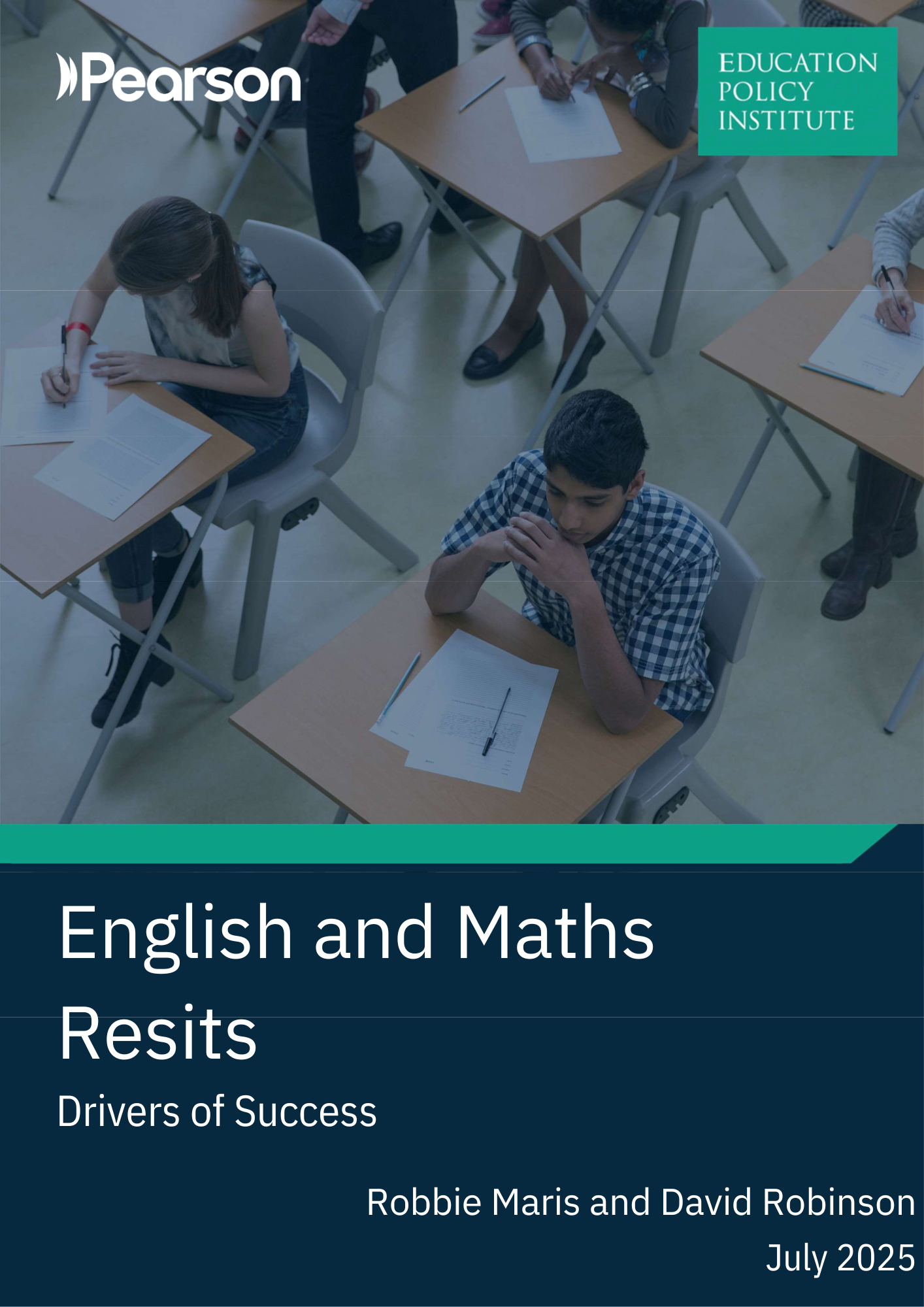Disadvantaged students are, on average, one-fifth of a grade behind in English and one-eighth of a grade behind in maths when resitting GCSEs, according to research from the Education Policy Institute (EPI).
Introduced in 2014, the resit requirement aims to boost literacy and numeracy so that young people are better prepared for work and further study. Our report, funded by Pearson, “English and Maths Resits: Drivers of Success” examines what helps – and hinders – the roughly one-third of students in England who must retake English and maths each year. The report finds that:
- There is a cluster of top-performing institutions in the North West of England. The English and maths resit results of students in the North West are 0.1 grades higher than the average for students with similar Key Stage 4 results students across England. Conversely, the South West is the worst-performing region overall, recording below-average results in both subjects.
- There are significant attainment gaps by disadvantaged status, gender and ethnicity. Disadvantaged students fall behind by a fifth of a grade in English and one eighth of a grade in maths compared with their non-disadvantaged peers.
- Motivation, engagement, and attendance are critical for resit outcomes. Unauthorised absences in Year 11 strongly predict poorer resit attainment, indicating that the factors driving absences before age 16 persist post-16 and continue to affect academic performance.
- Resitting too soon can harm attainment, if not well targeted. While November resits can be beneficial for individual students, providers that enter more students for November achieve lower progress on average. This likely reflects a drop in motivation for those who don’t pass the November exams.
Building on previous work highlighting the urgent need for additional funding for students aged 16–19, “English and Maths Resits: Drivers of Success” proposes the following key recommendations:
- Introduce a 16–19 Student Premium to close the disadvantage gap through targeted funding.
- Prioritise strong student-staff relationships at the start of term, particularly for resit students who may have previously struggled with English or maths.
- If alternatives to the current GCSEs are to be developed, they should feature grading systems that clearly reflect incremental student progress.
- Refine institution performance metrics by accounting for students’ overall Key Stage 4 (GCSE) attainment when measuring 16–19 English and maths progress, providing a fairer assessment of how effectively institutions deliver resits.
You can download and read the full report here:



